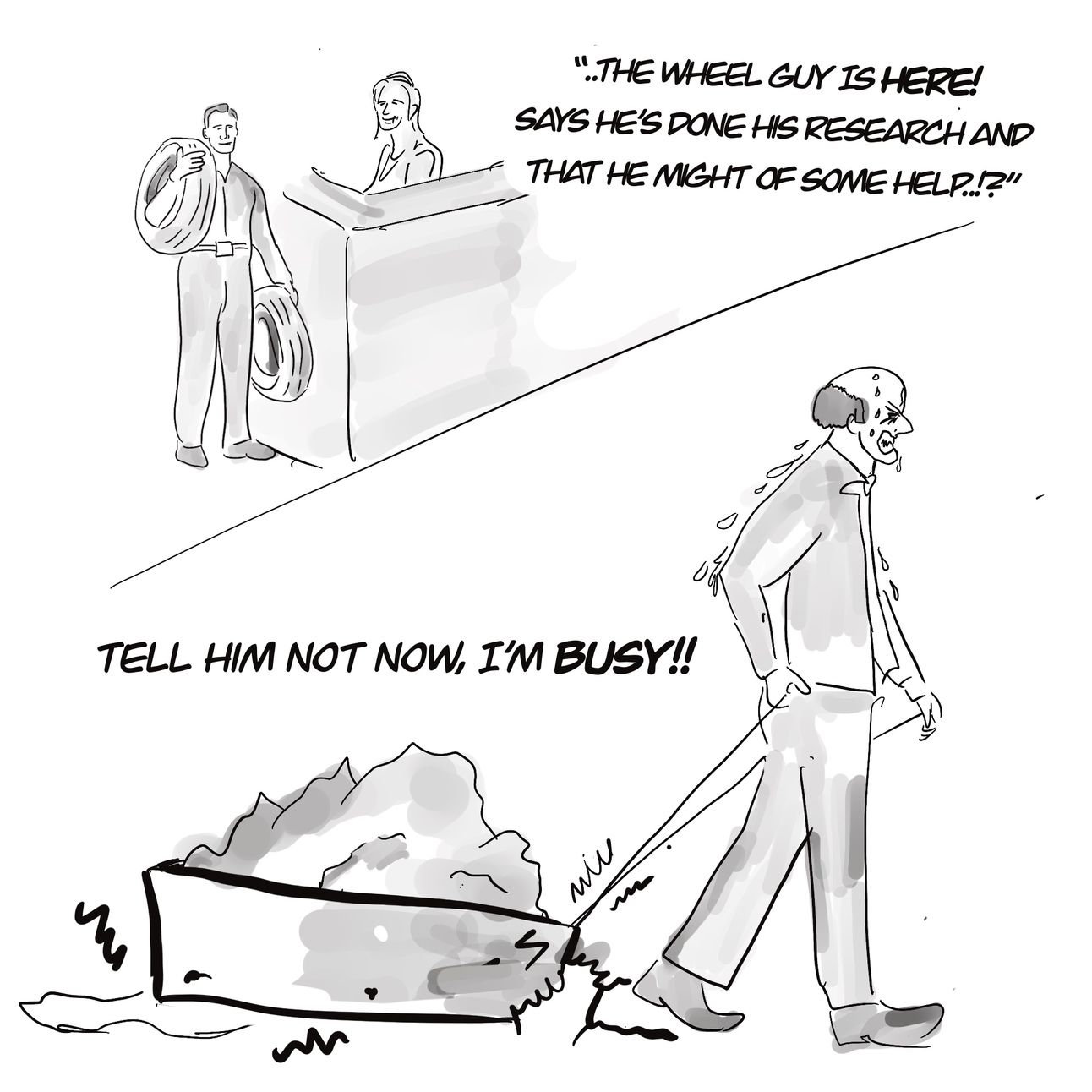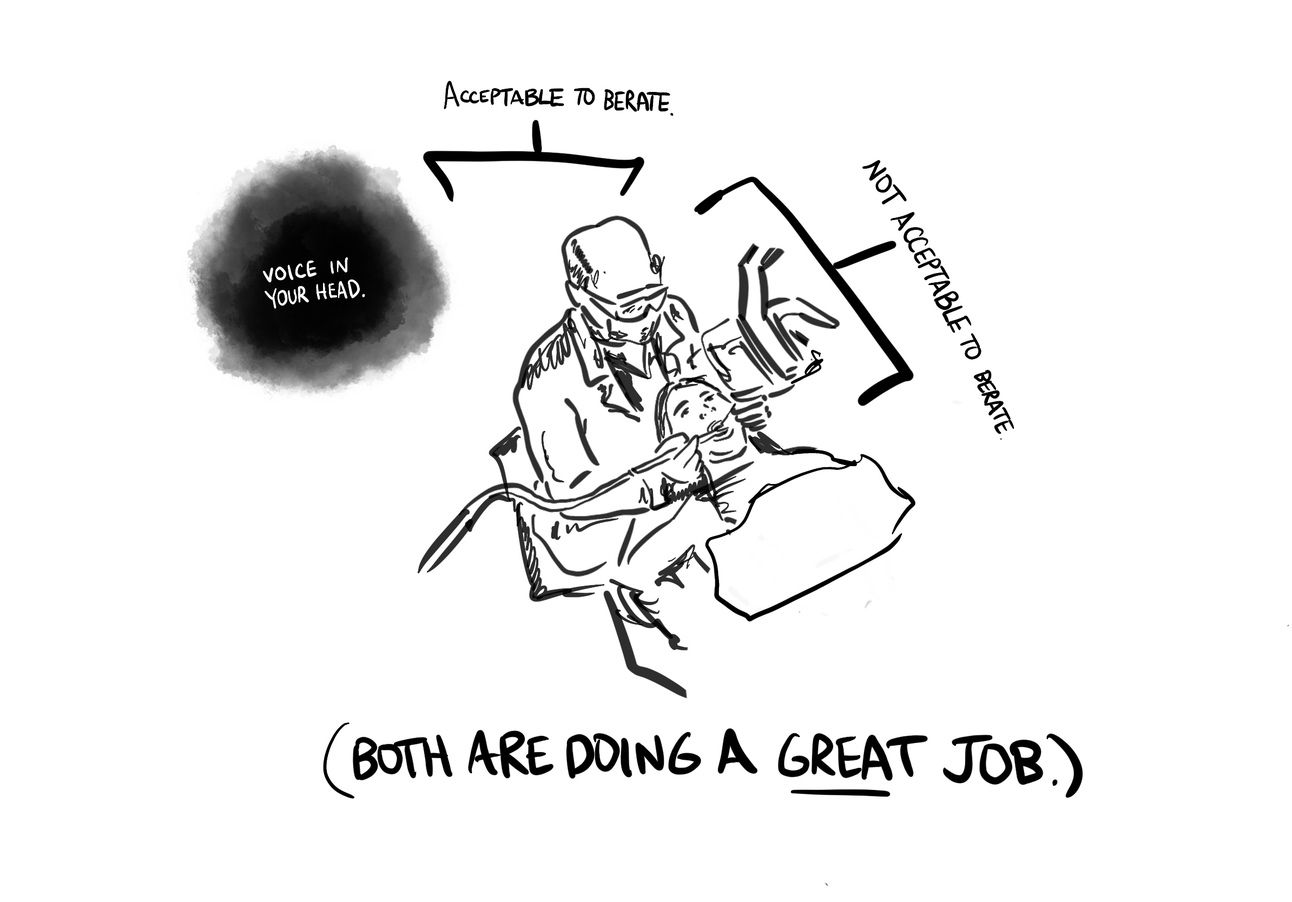- The Moment
- Posts
- Oliver's Advice.
Oliver's Advice.
To the Voice Inside.
Read time: 4 minutes.
At a glance:
Quote:
Picture
What I’ve Learned
Business Idea
What’s true a generation ago that no longer is…..and who is still clinging to it?

What I Learned:
The orthodontist flipped on his loupes.
Something was off with this patient’s treatment:
“Why… why does this keep happening to you? This is a disgrace. Why can’t you ever seem to get it right? It’s not that hard. Really. You’ve been doing this for too long. Why is it that seemingly everyone else can do this but you…you…you just can’t. You’re an embarrassment!”
Here’s my question:
Is this acceptable behavior ?
Would you intervene if you overheard it in an office?
What if I told you this conversation happens all the time.
Except it’s not between a doctor and a patient.
It’s between the doctor—and the doctor.
The critical, judgmental, relentless inner voice bashing efforts, comparing results, and relentlessly reminding you how terrible things are compared to your peers.
Somehow, this conversation is tolerated and acceptable.
Orthodontists can treat everyone with kindness, respect, and admiration—except the person they see in the mirror.

This week, the journalist and Guardian writer Oliver Burkeman struck a nerve.
Self-talk can be very negative in this profession. Social media can steal your worth. Status games run rampant.
The most successful can be the most inner-critical.
This week, I’m stealing a few of Oliver’s quotes from his book Four Thousand Weeks. I think they deserve deeper reflection - including the idea of treating yourself with the same respect you treat others.
5 Quotes from Oliver Burkeman
“One day, you’ll be dead, but your inbox will continue to receive emails.” All the different ways you think you’re getting more control of the team and attaining perfection within systems might distract you from confronting what is vital to life: Changing patient lives. Take measure of the power of your talents. In an industry all about total control, total control may distract you from the point.
“Don’t fall susceptible to the dark playgrounds of life.” The dark playground is where you feel like you’re supposed to work, even when doing something leisurely. This makes leisurely things less enjoyable, and you feel guilty about them. It’s ok to take time off. Let leisure be guilt-free. Otherwise, you’re never fully recharged.
“When confronted with a choice, choose the option that enlarges you rather than diminishes you.” If you’re facing a problematic practice choice and are unsure if it’ll be painful, you can typically connect to whether it’ll be enlarging or diminishing your future development. The answer comes quickly in your gut. Even if it’s painful, you know it might be better for you. Don’t ever chase ease. If enlargement means suffering, seek it.
“What is true is already so. Owning up to it doesn’t make it worse.” Not admitting something doesn’t make it go away. Owning up to it doesn’t make it worse. Be honest if a standard isn’t up to par, a teammate isn’t doing their job, or an issue bothers you. Ignoring is far more complex in the long run than facing the problem today.
“Be kind to yourself. Have at least the minimum bar for yourself that you have for everyone else.“ Nobody will have as intimate of a relationship with you as yourself. Don’t just randomly exclude yourself from that essential ethic with which you go through life. The nicest doctors to patients, staff, friends, and family can be psychopaths to themselves.
Speak to the person who speaks to new patients in the consult room… back to yourself.